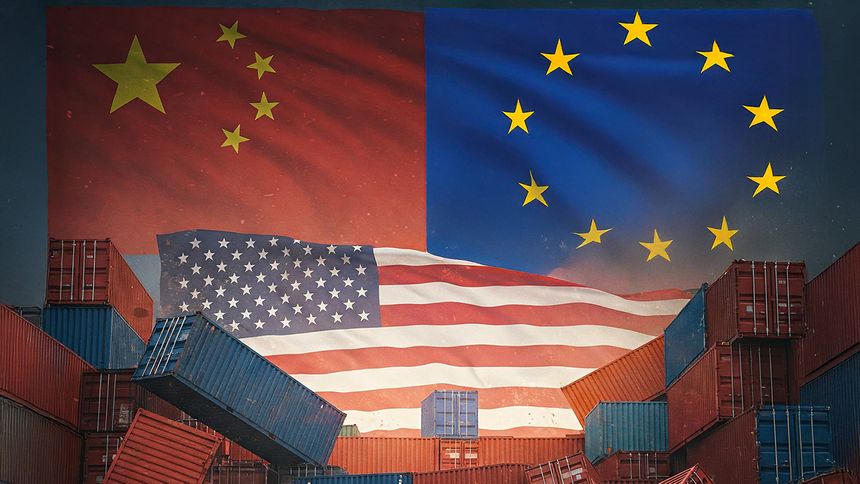The U.S. Department of Justice has launched a Trade Fraud Task Force to “aggressively pursue enforcement actions against any parties who seek to evade tariffs.” DOJ’s Civil Division will investigate violations of the False Claims Act, while the Criminal Division will explore Title 18 offenses. But it would be a mistake to assume that each division will work independently. As DOJ itself has made clear, the Task Force will augment “the existing coordination mechanisms” and “leverage expertise from both the Civil and Criminal Divisions.”
In other words, companies should expect an appreciable uptick in parallel investigations, i.e., simultaneous civil and criminal investigations based on the same underlying conduct. Parallel investigations in the tariff-enforcement context present a potential minefield for companies to navigate, but legal precedent and prior practice can provide a path forward.
Legal guideposts
The law makes clear that there are things that the government may not do when conducting a parallel investigation.
First, the government may not bring “a civil action solely to obtain evidence for its criminal prosecution.” United States v. Kordel, 397 U.S. 1, 11–12 (1970). Such pretextual civil action, in the garb of a False Claims Act action, for example, constitutes “bad faith” conduct that may torpedo a government action. See id.; see also SEC v. Dresser Indus., Inc., 628 F.2d 1368, 1387 (D.C. Cir. 1980) (en banc).
Second, the government may not affirmatively misrepresent that the nature of the investigation is purely civil or engage in other forms of fraud, deceit, and trickery to induce a defendant into incriminating himself or herself. United States v. Stringer, 535 F.3d 929, 937–40 (9th Cir. 2008) (collecting cases). In United States v. Tweel, 550 F.2d 297, 298–99 (5th Cir. 1977), for example, the court concluded that the government’s civil authorities “grossly deceived” the defendant by failing to “apprise” him of the criminal nature of its inquiry at the direction of DOJ’s criminal officials.
Third, under such circumstances, the government may not fail “to advise the defendant in its civil proceeding that it contemplates his criminal prosecution.” Kordel, 397 U.S. at 11–12. That is, in this context, the government must provide a defendant notice of the government’s potential use of the information in a parallel criminal proceeding. Stringer, 535 F.3d at 937.
Practice pointers
Typically, a parallel investigation begins with a reach-out from a DOJ Civil Division attorney. This makes sense. At the outset of an investigation, it is often unclear whether the alleged conduct rises to the level of criminal liability. Yet the conduct may also pique the interest of criminal prosecutors, thus setting the stage for a parallel investigation. What, then, should companies bear in mind as the investigation unfolds?
First, companies should consider directly asking the government whether a parallel criminal investigation is being conducted. This calculus generally turns on weighing the risk of planting a seed of concern into the mind of the DOJ civil attorney (by so asking) against the risk of not asking and potentially waiving constitutionally protected rights and otherwise forgoing the ability to account strategically for the involvement of criminal authorities, such as by seeking a global resolution.
Second, review carefully and thoroughly all communications, including process, received from DOJ civil attorneys. Such materials may contain, in relatively small print or in a less-than-prominent area of the form, an advisement of the recipient’s right against self-incrimination or an advisement that the government’s request for information may be used against the recipient in a later criminal proceeding. The inclusion of such language may signal that criminal authorities are involved. Moreover, such “notice” would arguably trigger the recipient’s responsibility to affirmatively invoke his or her right against self-incrimination, lest the right be waived.
Third, calls or meetings with DOJ civil attorneys or investigators should include someone on the defense side who can serve as a testifying witness. It is not uncommon for the government to make oral statements concerning the involvement of criminal authorities that may lull a subject or target of an investigation into a false sense of security. If this occurs, it is paramount that there is a witness who can attest to this fact without compromising the composition or strength of the defense team.
This primer on parallel investigations presents just the tip of the iceberg. With civil and criminal enforcers at DOJ working in tandem to aggressively investigate suspected tariff evasion, it is imperative that companies facing parallel investigations proceed especially carefully and strategically, understanding not just the tip but also the iceberg as a whole, and using the law both as a shield and a sword.
Additional authors: Sophie Nelson

/Passle/5db069e28cb62309f866c3ee/MediaLibrary/Images/2025-06-30-18-20-05-882-6862d555bf3898129ef17194.jpg)
/Passle/5db069e28cb62309f866c3ee/MediaLibrary/Images/5dcaad7f8cb6230d740f6e44/2020-09-09-10-34-00-350-5f58af9853548812f484795c.jpg)
/Passle/5db069e28cb62309f866c3ee/MediaLibrary/Images/2025-09-08-14-53-13-586-68beedd97356a10e44369bc6.jpg)
/Passle/5db069e28cb62309f866c3ee/MediaLibrary/Images/2025-11-10-19-05-26-989-69123776a319d5ea6f5c806e.jpg)
/Passle/5db069e28cb62309f866c3ee/SearchServiceImages/2025-11-17-06-06-19-600-691abb5b5011860d8fdcc894.jpg)